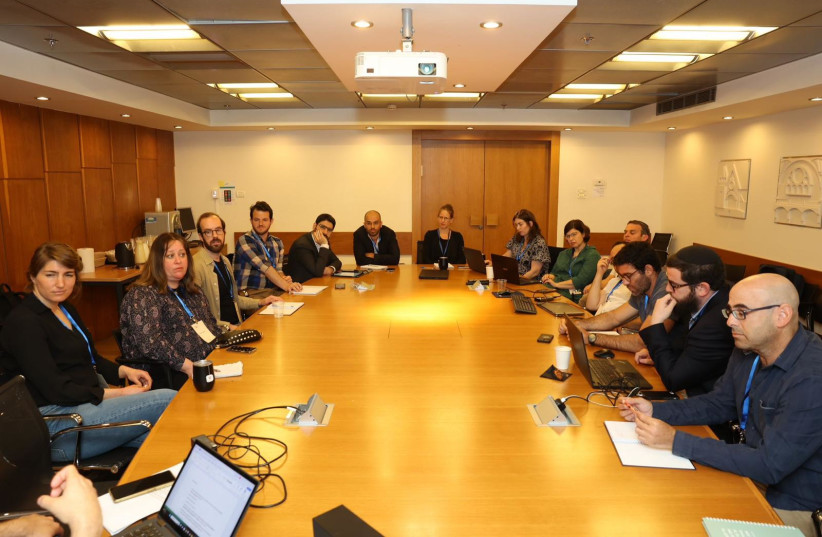The Jewish Peoplehood International Conference, organized by the newly established Koret Center for Jewish Civilization, has brought together nearly one-hundred visionary Jewish leaders from around the world to address the pressing challenges and opportunities facing Jewish educators and leaders today. The conference, which took place recently at the ANU Museum in Tel Aviv, was a unique and innovative ideation space for Israelis and global Jewry, with a focus on education, academia and leadership in the Jewish Peoplehood field.
"In this time of heightened tension and uncertainty, it's essential to create a shared understanding, vision and set of goals around global Jewish peoplehood, to be organized around," said Moran Lencer Horsky, director of the Koret Center. "Our conference will act as a launch-pad for cross-pollination between academia, education, and leadership. Our center has the mandate and intention to harness insights generated and transform them into ground-breaking solutions for some of our core issues."
What did the conference cover?
The conference featured small-format tracks encouraging intimate discussions and the sharing of diverse perspectives. Participants include researchers, thought leaders, educators, and leadership development professionals, all of whom share a deep commitment to enhancing Jewish belonging and analyzing their respective fields.
Within the conference, special dialogue was held between millennial North American Jewish leaders and Israeli government professionals and elected officials. Initiated by the Tisch Center, a dozen North Americans representing a diverse range of American Jewish organizations engaged with Israeli government officials and elected leaders from a broad spectrum of political parties and government ministries for an intensive day-and-a-half seminar. The Dialogue was aimed to foster personal and professional relationships and a set of best practices between the rising leadership of the two centers of the Jewish world.
Tracy Frydberg, director of the Tisch Center and one of the organizers said that “at a moment of high intensity and shifting norms, now more than ever we must initiate constructive dialogue processes in the Jewish world.” She added that “together, this group had the ability to imagine, test and then implement not only a new conversation, but a new social contract and set of projects to guide how Israel and American Jewry tackle challenges and harness opportunities,”

Naama Klar, director of the Koret International School for Jewish Peoplehood said about the conference that “the Jewish people have big questions to answer nowadays. We're facing a couple of very difficult and big questions about our united continuity and how we can preserve it.” She added that “this new partnership wants to make a significant positive contribution vis-a-vis these huge questions of meaningful Jewish existence.”
Neria Meir, head of the World Zionist Organization's Diaspora department, a partner of this initiative said during the conference that “the State of Israel was founded as the Jewish state and celebrating its independence is a celebration for all the Jewish people.”
Dr. Scott Lasensky, on behalf of ENTER: the Jewish Peoplehood Alliance, a partner on the initiative said at the event that the joint initiative “builds bridges between young professional American Jewish leaders and young professional Israelis in politics. Gone are the days when a small, exclusive circle of elites could hammer out understandings behind-the-scenes,” he said. Lasensky added that “Pluralism defines our era and power and influence are more diffuse than ever before.”
“The Tisch Center’s peoplehood-centered framework nurtures a common ideology and a shared outlook, which is especially vital at this time when Jewish unity is being challenged from so many directions,” Lasensky added.
The workshop took place in the context of ANU’s Koret Center for Jewish Civilization Conference, which brought together experts across the fields of education, academia and leadership to consider together the future of Jewish peoplehood.
